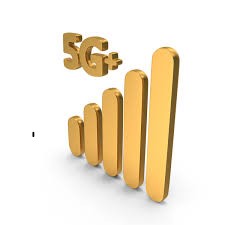
The introduction of 5G networks as revolutionized the IT landscape, marking a significant shift in how industries, businesses, and consumers interact with technology. With ultra-fast speeds, low latency, and the ability to connect millions of devices simultaneously, 5G connectivity is poised to drive massive changes across sectors. This blog explores how 5G networks are transforming IT infrastructure, software development, and innovation while paving the way for the future of technology.
The Evolution of 5G Networks
5G networks represent the fifth generation of mobile communications technology, offering speeds up to 100 times faster than 4G. This leap in connectivity is transforming IT by enabling new capabilities such as real-time data processing, enhanced IoT (Internet of Things) integration, and more efficient cloud-based applications. 5G technology allows for improved performance in mission-critical applications, from healthcare to autonomous vehicles, opening doors for IT innovation in ways that were previously impossible.
Moreover, 5G networks provide more reliable connections, making it possible for IT infrastructure to handle vast amounts of data in real time. This change is especially impactful in sectors like finance and healthcare, where low latency and high-speed data transfer are crucial.
Ultra-Fast Connectivity and Cloud Computing
Ultra-fast connectivity is revolutionizing cloud computing. With 5G networks, businesses can leverage cloud computing like never before. 5G technology allows IT professionals to seamlessly run applications in the cloud without experiencing delays or lags, which was a common issue with earlier generations of mobile networks.
As 5G networks enhance the reliability and speed of cloud-based applications, companies can rely more on cloud computing for complex tasks like data analysis, AI, and machine learning. This transformation is particularly beneficial for organizations that handle massive datasets, as the increased bandwidth allows for real-time processing and insights.
Internet of Things (IoT) and 5G
The growth of the Internet of Things (IoT) has been closely linked with the rise of 5G networks.5G technology has made it possible to connect millions of devices without compromising on speed or efficiency. As a result, IT professionals can now deploy large-scale IoT networks in smart cities, industrial automation, and even healthcare settings.
With 5G connectivity, the future of IoT is more promising than ever. Real-time data sharing between devices ensures that industries like manufacturing can monitor equipment, predict maintenance needs, and optimize workflows using ultra-fast, reliable connections.
5G and Artificial Intelligence (AI)
The synergy between 5G technology and Artificial Intelligence (AI) is another area where IT is being transformed. Ultra-fast networks enable AI systems to process data and make decisions faster than ever. This has profound implications for industries that rely on AI, such as healthcare, where faster data analysis can lead to quicker diagnostics and treatment recommendations.
5G networks also allow for more sophisticated AI applications, such as autonomous vehicles and smart city management, where real-time data processing and decision-making are essential. As 5G technology continues to evolve, so too will the potential of AI in transforming the way we live and work.
The Future Beyond 5G
While 5G technology is already transforming IT, the future holds even more potential with developments like 6G networks on the horizon. These next-generation networks will likely offer even faster speeds, more reliable connections, and new capabilities that could further revolutionize IT infrastructure and the way technology is integrated into everyday life.
As we look beyond 5G networks, it’s clear that ultra-fast connectivity will remain a driving force in IT innovation. From cloud computing to IoT and AI, the possibilities are endless as technology continues to evolve at a rapid pace.
Conclusion
In conclusion, 5G networks and ultra-fast connectivity are driving unprecedented transformations in the IT industry. With its ability to deliver lightning-fast speeds, low latency, and reliable connections, 5G technology is enabling new advancements in cloud computing, IoT, and AI. As we move into the future, the impact of 5G and beyond will continue to reshape the way businesses operate and technology evolves, positioning IT at the forefront of innovation.
